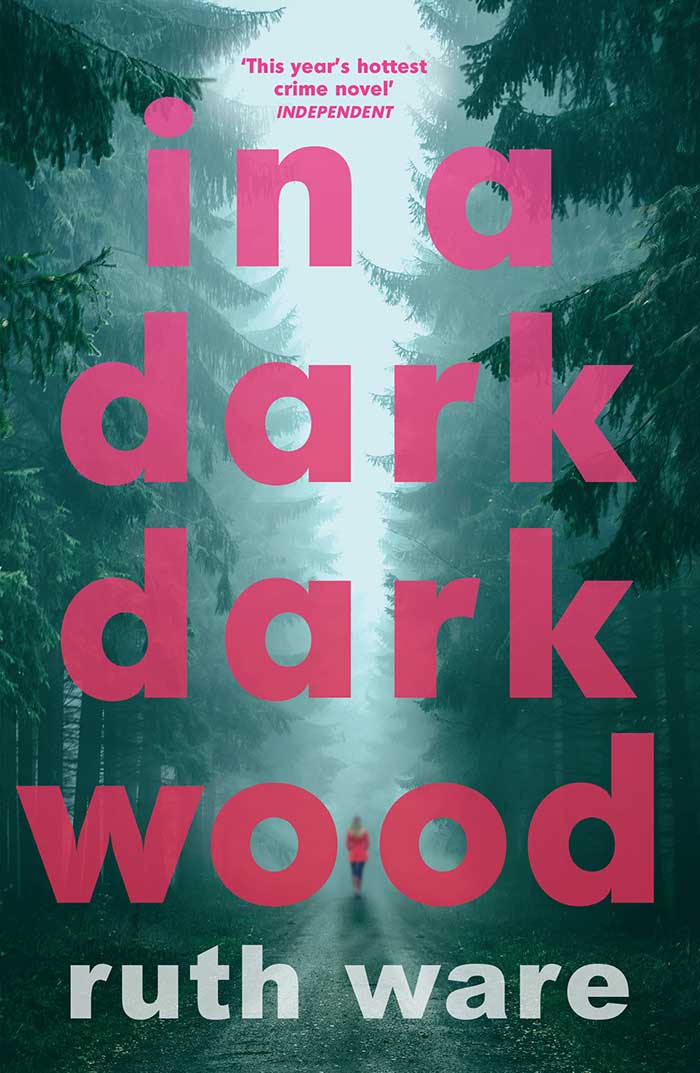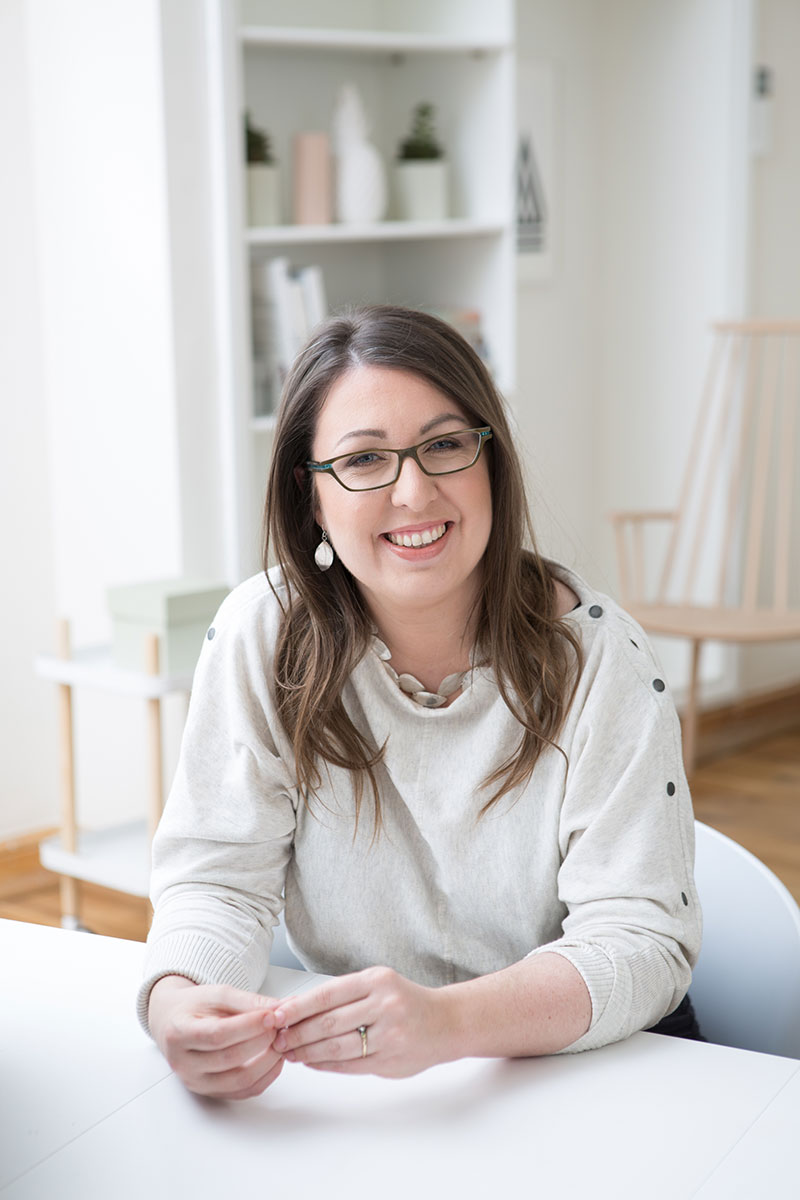
Image Credit: Gemma Day
Welcome to the members only FAQ page…
The rest of this page contains SPOILERS from herein!
So don’t open the question tabs if you haven’t read these books…
What happened about Gabe's insurance policy? Did it pay out?
I’m not sure about this – there’s often stuff in books I don’t know until I’ve written it – and in this case since I haven’t written it, I don’t know! But my hunch is they would probably refuse to pay out when it became apparent that Gabe didn’t take out the policy himself, because that would effectively mean the policy was fraudulent. The police would have to contact the insurance company to get the recordings of Cole, so as part of that, the insurance company would almost certainly discover the deception. It’s possible they might make some kind of ex gratia payment to Jack out of embarrassment though. It would be very bad publicity for them if it came out that they allowed a murderer to take out a policy on his victim. So I think it’s quite likely she might get some kind of compensation as part of agreeing not to go public about the debacle, if not the full policy payout.
![Zero-Days-fc[13294]-opt](https://ruthware.com/wp-content/uploads/2023/03/Zero-Days-fc13294-opt.jpg)
Why does Will get so angry when he overhears Hannah talking on the phone to Ryan? And why does he seem to threaten her?
I’ve been asked this quite a bit from people who don’t understand why he wouldn’t just defend himself, and why he gets so furious at Hannah for suspecting him. My take is this – Will has lived his entire adult life knowing that many people suspect him of murdering April. After all, the cliche that it’s always the dead woman’s partner is a cliche because it’s true – and he knows it. But he’s always thought that Hannah, of all people, had his back. In that moment, the moment he overhears Hannah questioning his innocence to Ryan, he realises that’s not true – she doesn’t fully trust him, and for him, because he hasn’t been part of Hannah’s investigation, it’s a complete shock.
I think that would be an incredibly triggering moment for him – a complete betrayal of the trust in their relationship. He doesn’t want to defend himself because he doesn’t think he can – if his own wife can seriously suspect him of murder after ten years together then what on earth can he say that will change her mind? “I didn’t do it”? She should know that already. So he reacts with anger instead – knowing that the thing that will hurt her most is his refusal to defend himself – and in that moment he does want to hurt her. He wants her to feel as shocked and betrayed as he does. Of course, he inadvertently pushes her into risking her life by running away to Hugh.
As soon as Hannah runs, he realises what he’s done and he tries to stop her and then to run after her – but it’s too late. And Hannah, seeing his actions through the eyes of her newfound suspicions, interprets his pursuit in the worst possible way.
Only afterwards when she knows the truth about Hugh, does Hannah realise that Will was never trying to harm her, would never have harmed her. And only when Will realises what’s happened does he realise how reckless his actions truly were.
The narrative is split up into before and after and alternates between the two. Did you write the "before" chapters all together and then the "after" ones, or did you switch back and forth?
I’m asked this question a lot, also with reference to some of my other split timeline books, like In a Dark, Dark Wood, and the answer is always the same – I write in the order you read. The reason is because in crime writing, a huge part of writing is keeping track of what your reader knows and suspects, and the only way I can do that is to write in the same order the reader reads. So yes, I switched back and forth. It was a nice change when writing to go from angsty present-day Hannah to carefree past Hannah!
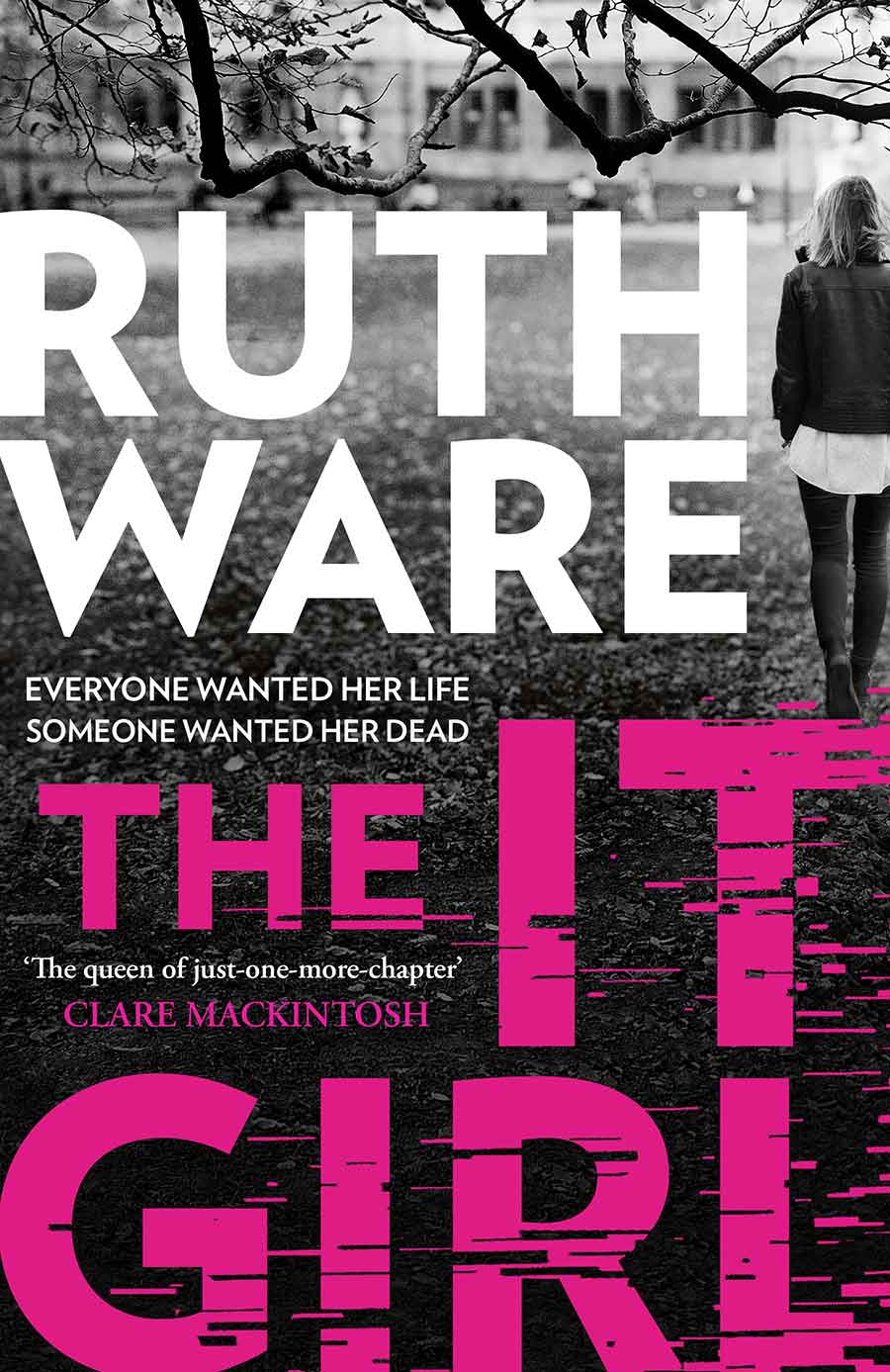
Did Eva's body ever get returned to her family?
Yes, I think it was recovered once the thaw set in and airlifted out.
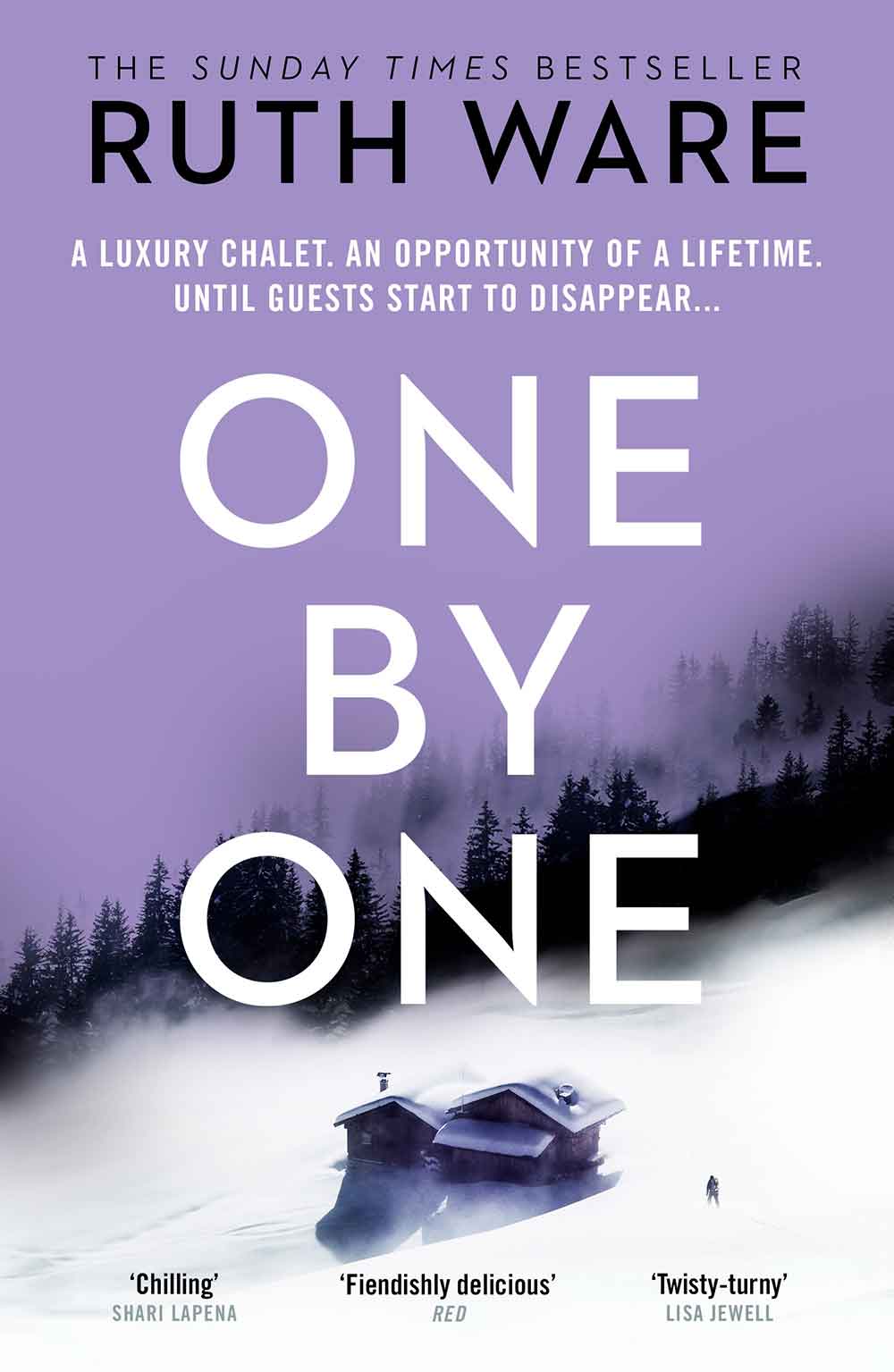
What happened to "the other little girl" - Elspeth who ate the poison berries?
I really wanted to get this into the book but I couldn’t find a way! All we’re left with in the story is Rowan’s questions and her confusion about how the daughter of a poisons expert could make such a basic mistake. The actual truth is that Elspeth picked the berries herself as a cruel prank on her own nanny – a kind of echo of the resentment Maddie feels towards Rowan. Whether she meant to kill her nanny, I’m not sure. I think probably she just meant to make her sick. But in the end the nanny resigned from her post shortly after, and it took a while for the jam to get eaten. By the time the jar came out of the pantry Elspeth had completely forgotten what she had done, and ate the jam herself. At the inquest they assumed that Elspeth had picked the berries by mistake because the nanny wasn’t there and she was unsupervised. In fact it was the other way around – Elspeth picked the berries deliberately as part of a campaign of bad behaviour to try to get the nanny to leave. But she ate the jam because the nanny wasn’t there – and she had completely forgotten about her own actions.
Is there a mistake with the dates of the letters at the beginning of the book? They don't seem to add up.
If you noticed this you are eagle-eyed! Yes, there is a discrepancy but it’s not a mistake. In the letter dated 12th September, Rachel says that she wrote to Mr Wrexham three days ago, but the previous letter in the book is dated 7th September. This is not an error – it’s actually a clue that what you are reading is the unsent letters. The letter she wrote three days ago is the only letter she posted – and Mr Wrexham never replied. She is composing a follow up with more information, when she receives Ellie’s letter and decides not to send any further letters.
Who took the key from the top of the door?
Maddie – using a chair. Rowan never considers this possibility.
What happens at the end of the book?
I have been asked this a lot and it’s really hard to answer over twitter without spoilers – and I try to keep my twitter feed fairly spoiler free. So I apologise if you have ended up here after being redirected from twitter! The short answer is that there are some things you are supposed to know, and some things you are not supposed to know, and which I can’t help with.
What you are supposed to know is what you probably already figured out – that Rowan / Rachel was writing to Mr Wrexham when she received the letter from Ellie and learned the truth about what went down at Heatherbrae House. Consequently she realises that she cannot make good on her promise to Mr Wrexham to tell the whole truth – at least not without betraying her sister’s trust. So instead of sending the letters she hides the whole package in the wall and goes to her trial with her original lawyer, relying on her original story to save her. Essentially she takes the fall for Ellie.
What I don’t know is the verdict – that’s really up to you to decide. Either way, whether she was convicted or found innocent, she would not have been able to get back to retrieve the letters. If she were found innocent she would have been released, and if she were found guilty she would have been sent to prison probably closer to home, which is why they are still in the wall when the prison is demolished.
One thing I can tell you is that she isn’t dead. We don’t have the death penalty in the UK, and life very rarely means actual life unless the crime is particularly brutal or the perpetrator is so mentally ill they cannot be safely released. So you can rule out that concern!
As a reader, I really enjoy being left with something to ponder at the end of a book, so I try to leave a lingering question for the reader when I write too, but this is a particularly big question, I do admit. Do you think there was enough evidence against her to convince a jury? Would you have convicted in their shoes?
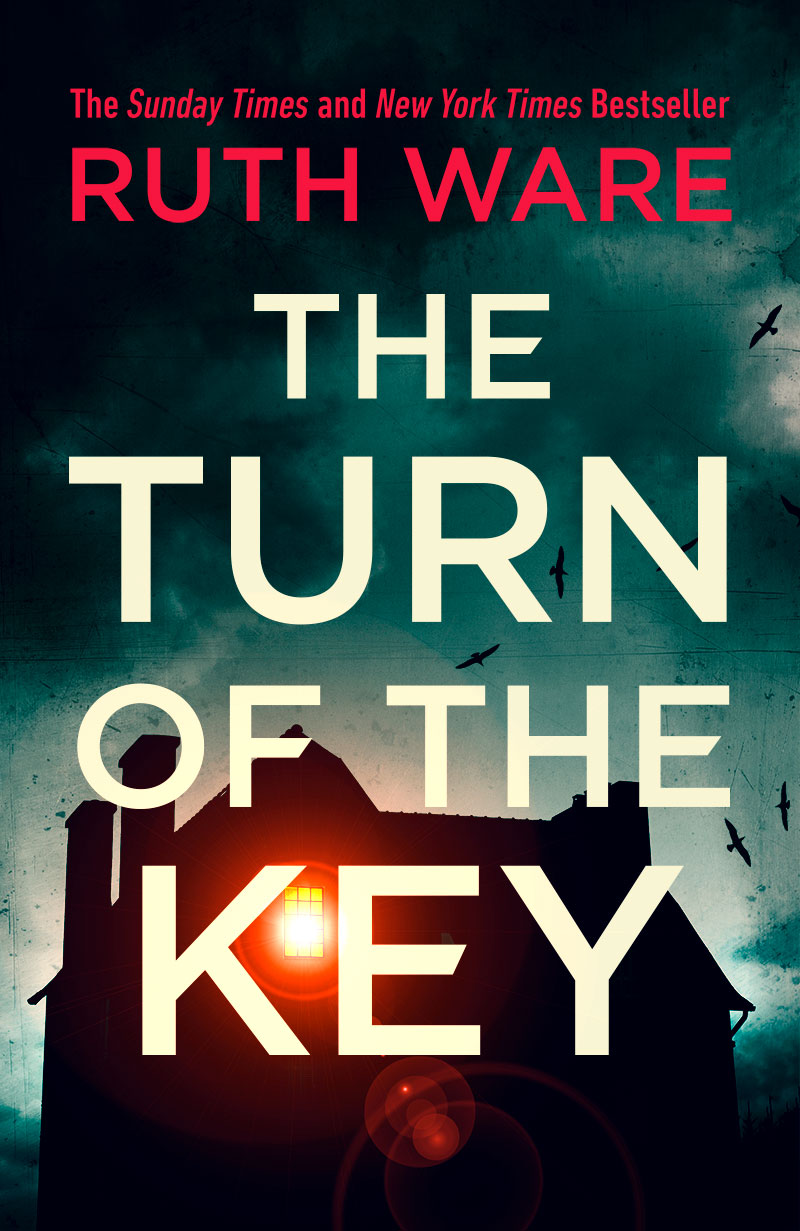
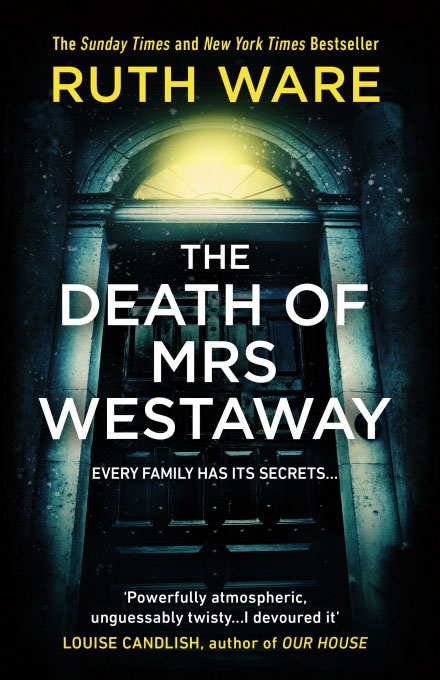
When Hal looks at the photograph Abel gives her and recognises the woman who brought her up (Maud), why does Abel mislead her by telling her the woman is Maggie?
This question has come up a few times, so don’t worry, you are not alone if you found this passage confusing.
The issue is that Hal and Abel never realise they are looking at two different people in the photograph.
When Hal looks at the photograph she sees four people – Ezra, Abel, a dark haired woman she recognises as her “mother”, and a fair haired woman whom she assumes must be the missing sister, since she’s the only person in the photograph she doesn’t recognise. Hal is pretending to be the daughter of the missing sister, but wants to find out how Abel knows her mother, so she asks him “Abel, there’s you, Ezra and my mother” (by this she means the fair haired girl, because she assumes that’s the person she is pretending to be related to) “but… who is the other girl?” (by this she means the dark haired girl).
Abel, who knows dark haired Maud to be his sister, naturally assumes Hal is asking about fair haired Maggie, and replies “Maggie… a sort of distant cousin.”
Is Salten House based on a real boarding school?
No! Physically I imagine it a little like Roedean, which is a very prestigious girls boarding school on the south coast, but the resemblance ends there. Roedean is much bigger and (I’m certain!) much better run than Salten.
I never went to boarding school – I went to a regular state school – but I have a lot of friends who did and they helped me with some of the detail, although I did take a little bit of artistic license in some parts.
Do you think Isa and Owen will be ok?
I don’t know. I think Isa has fallen out of love with him at the end of the novel, but I think they both very much want to make it work for the sake of Freya, which is probably 99% of the battle.
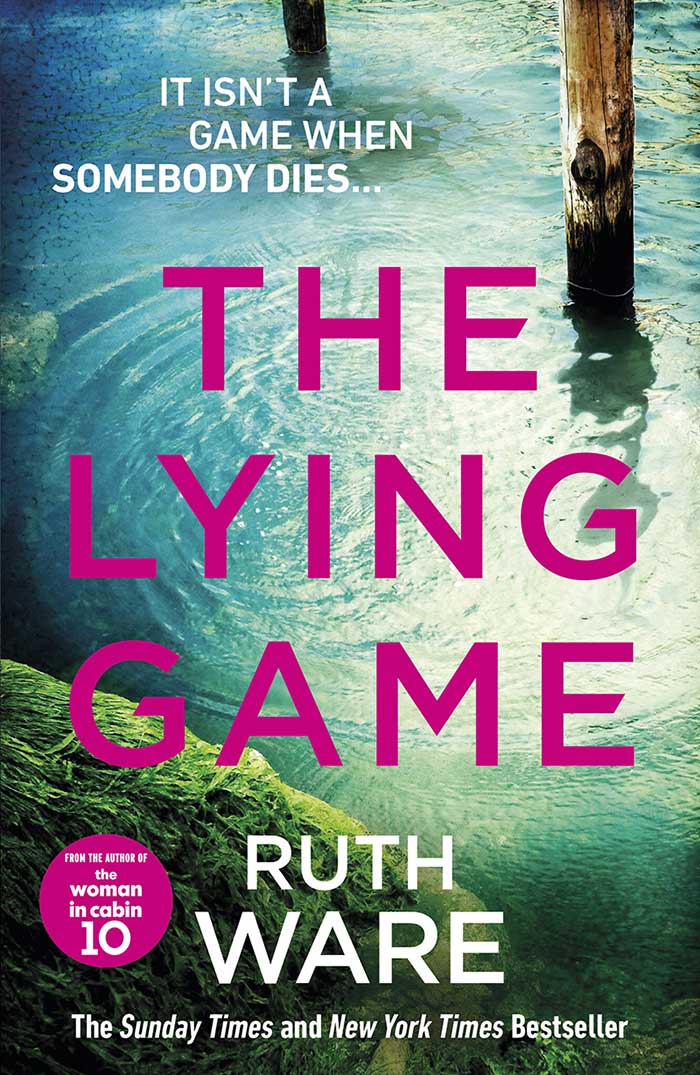
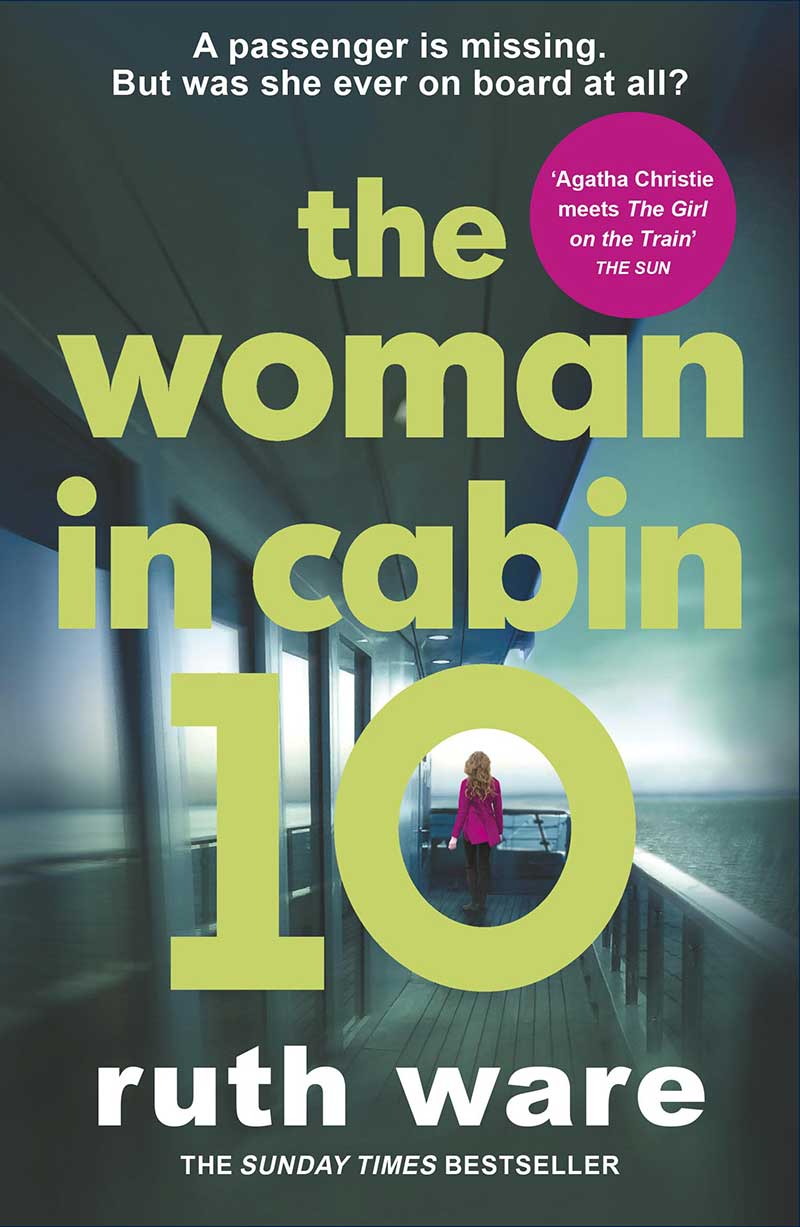
Who sent the 40,000 swiss francs to Lo?
This is a question I get asked a lot – and I think it’s because there’s no convenient “wrapping it up” scene at the end of this book where everything is explained. I tried really really hard to get one in, but it just didn’t work, so the reader is left to put a lot of pieces together, and if there are any tiny details you missed in the read, it makes it tricky.
Carrie sent the francs to Lo – this is the meaning of the “tiggers bounce” reference – it’s what her mum always used to say to her. She’s telling Lo that she “bounced” and is ok.
The two bodies found are Anne Bullmer (the shorn haired woman’s body) and Richard Bullmer. Richard’s body was found with a bundle of Lo’s clothing (thrown overboard by Carrie, weighted down by the gun) and this leads Judah to jump to the conclusion that the body is Lo (and later, when Lo is found to be ok, that the body is Carrie.) In fact the body was of course male and the Norwegian police never assumed it was Lo or Carrie at all – but they failed to communicate this to Judah. This is why the police apologise for “cross force communication issues” at the end of the novel, because Lo’s family were left believing that she had died for several days.
As for Carrie, she shot Richard, threw Lo’s clothes overboard, and escaped on Anne’s passport, before throwing it away when Anne’s death was discovered. She also used Anne’s papers to withdraw money from her Swiss bank account – hence her gift to Lo, both as a way of telling her she was ok, and apologising for everything she had put her through.
Was the burglary connected to Richard’s plan?
Yes! I have seen a few comments saying this is a loose end, but in fact it’s not (though it’s true it’s never explained). The cabins are in a horseshoe formation with the two end cabins, 9 and 10, side by side at the back of the ship. Richard originally intended for both cabins to be empty to avoid the possibility of being overlooked, so he hires someone to prevent Lo and the Swedish investor from coming. In the case of the Swede, the attempt succeeds. In the case of Lo, it fails as the burglar failed to snatch her passport and she is too set on travelling to allow the attempt to dissuade her.
It’s too late to orchestrate another attempt, so in the end, Richard has no other option but to continue with the plan, even though he now has the possibility of being overlooked.
What happened to Delilah the cat?
Again, I tried SO hard to put this scene in but I couldn’t find a way it didn’t stick out like a sore thumb!
I think Lo’s mum took Delilah while Lo and Judah found their feet in the US, and then later she flew over on a pet passport and settled with them in America.
That email at the end of In a Dark, Dark Wood – what does Nora do?!
I truly don’t know – that part is unwritten which means it’s completely up to you. But if it helps you decide, it’s worth noticing that Nora uses exactly the same words to describe her actions as she does in the chapter at the beginning of the book when she’s trying to decide whether or not to open Flo’s email. In that scenario she does open the email of course… but we all know how that turns out!
Would you ever write a sequel?
In a Dark, Dark Wood was the first crime book I ever wrote and back before it was published I did toy with the idea of writing a sequel – that’s partly why I made Nora a crime writer and Matt a police officer, because I thought it would make it possible for Nora and Matt to team up. I thought that perhaps it would make the book easier to sell if I had a sequel in mind, as I knew that some publishers prefer to market series. However in the end Vintage, the publisher I sold the book to, preferred the idea of a standalone.
I wouldn’t let that stop me if I really and truly wanted to write another book about Nora, but part of the problem is that although I think it’s very plausible for one terrible, extraordinary event to happen to a normal person, I don’t think it’s very likely for them to experience several. You get the Murder She Wrote effect where everywhere Jessica goes, she stumbles over a corpse! That works in certain types of fiction, but I’m not sure if I could pull it off.
What would have happened if Nora hadn't been able to go on the hen night?
So I’ve slightly paraphrased this question to avoid putting spoilers in the question itself, but the question is really, what would Clare have done if Nora hadn’t been able to go, would she have gone ahead with the murder and tried to pin it on someone else?
The answer I think is yes, but it would have been much more difficult because Nora’s presence at the hen night was essential to luring James down. So I think her first port of call would have been to try to force Nora to attend, if necessary, by changing the date to accommodate her. I also think that Clare knows Nora pretty well and has a fair idea that she will cave to psychological pressure if Clare begs her – which in fact she does. So Clare is pretty confident that she can persuade Nora to attend.
But if absolutely necessary then yes, she would have pinned it on someone else, probably Flo.
